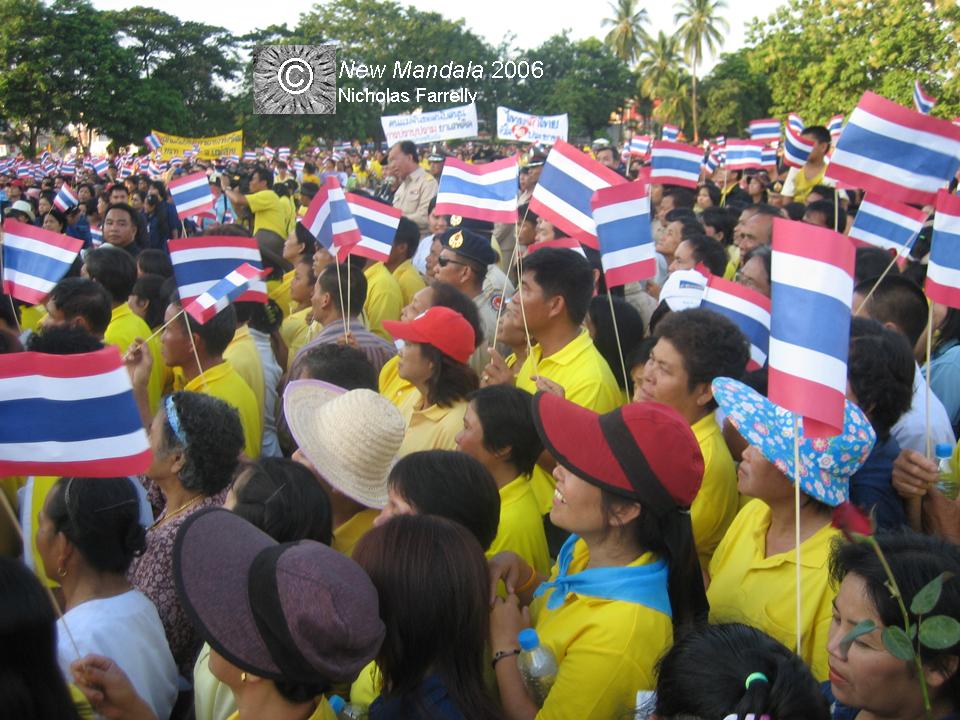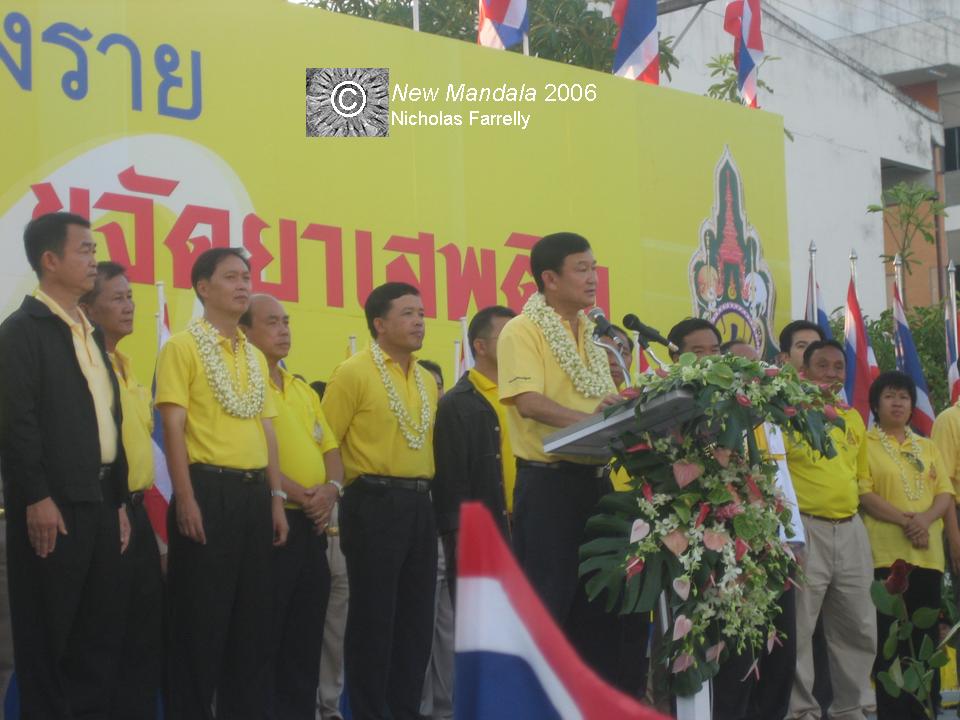Over the next few days, the global media frenzy surrounding the Thai coup will, no doubt, reach fever pitch. Rumours and speculation abound. At this stage, there is much that we do not know. The best summary of breaking news is coming from Bangkok Pundit‘s regularly updated coverage.
What we do know is that the 1997 Constitution – the one I have spent so many hours studying – seems to be gone. A newly militarised and uncertain reality now blackens the scene.
In all the excitement and rush to comment, some hard truths may be overlooked.
Right now, former Prime Minister Thaksin Shinawatra could not be defeated at the ballot box. I have seen it firsthand and it is acknowledged by even the most diehard anti-Thaksin campaigners. I have observed two of the three Thai elections held under the 1997 Constitution, in 2001 and 2005. For these elections I was on the ground, observing events around polling stations and tally rooms on election day. I was not in Bangkok but rather in rural areas, far from the scene of yesterday’s dramatic events. I have seen Thaksin’s national victories up close in two very different rural constituencies – one where the former Prime Minister is beloved and another where he is reviled.
Based on my experience on the ground during those election campaigns, Thaksin didn’t become Prime Minister just because he is more corrupt or more criminal than his opponents. He is, simply, more popular with more people. In a country with tens of millions of working poor – and where the elite is perceived to look after its own interests above all else – Thaksin stood apart as a very rich man who actually won favour with the poor masses.
Using all of the tactics popular with other Thai politicians, augmented by his own innovative strategies, Thaksin became a titan at the ballot box. He beat other politicians at their own game. They all know the rules when “playing” Thai politics. They know that elections are won locally, by currying favour with influential people, cultivating a broad base and signalling their ability to direct resources to their supporters.
When they know they will lose, some just pretend that they don’t want to play.
In Thai politics, the rules are well known and have always, I suppose, involved the possibility of military intervention. Thaksin knew this, of course, and must have worried when he boarded his flight overseas.
Thaksin appears to have lost this round between the Thai political heavyweights. His defeat has come not at the ballot box but through the use of a trump card. That card is an ever-present threat for whoever takes responsibility for running Thailand’s government in the future.
In case there was ever any doubt, the rules of the game now seem pretty clear.
 Facebook
Facebook  Twitter
Twitter  Soundcloud
Soundcloud  Youtube
Youtube  Rss
Rss 
